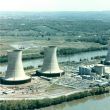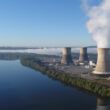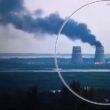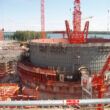Reducing risk through good governance
By Sulfikar Amir, April 2, 2014
All technologies involve risk, but perhaps no technology is perceived as riskier than nuclear energy. Its risks, however, are not solely a function of technical issues—organizational and institutional capabilities play a crucial role as well. For example, though a developing country may utilize technologically advanced reactors, the country's nuclear risk will still be relatively high if institutional preparedness does not measure up. I have argued elsewhere that, in less advanced countries, nuclear energy's risks are more associated with the institutional sphere than with any particular reactor's design and safety systems.
In her first essay, my roundtable colleague Yun Zhou wrote that any nation developing a nuclear energy sector or expanding an existing one must establish three things: a sustainable development process, an appropriate safety framework, and a productive approach toward public opinion. Zhou did not use the term herself, but her prescriptions fall under the rubric of nuclear governance, which I would define as the way in which multiple stakeholders manage nuclear risk. Governments in the developing world must establish good systems for nuclear governance if they are to avoid controversy and maximize their chances to operate nuclear power safely. The foundations of nuclear governance include, from my point of view, at least three things: transparency, accountability, and trust.
Providing appropriate information to the public, as Zhou and Pervez Hoodbhoy have both discussed, is among the most critical issues surrounding the operation of nuclear power plants. Nuclear industries have a tendency to treat much critical information as secret—but the history of nuclear disasters has demonstrated that secrecy only increases the risk of a meltdown when a nuclear power plant experiences a crisis. Nuclear risks are too complex to be managed properly by plant operators alone. Potential hazards must be detected before they turn into crises. This means that nuclear risks must be communicated to the public and external stakeholders must have a chance to recognize risks at an early stage. For developing countries that lack traditions of transparency, establishing transparency in the nuclear realm may be challenging. It is also indispensable.
Accountability, an equally necessary component of nuclear governance, requires that regulators and plant operators, on a regular basis, report to and consult with the public regarding decisions made and actions taken. Accountability is a two-way street. Public assessment of officials' performance must become an essential element of nuclear safety practice and a regulatory framework must be established that facilitates this process. And any healthy system for nuclear accountability requires that civil society groups play an active role in monitoring official performance.
A third key element of nuclear governance is trust, the primary topic of my first roundtable essay. When the public lacks trust in nuclear authorities and plant operators, good nuclear governance is unlikely to be realized. When trust is present, the public and the nuclear industry can engage in balanced communication about nuclear risk (sine qua non for comprehensive risk assessment). Building such trust requires that the public be given ample opportunities to participate in decision making. When such opportunities are withheld, good nuclear governance is not possible—and a nuclear power sector is unlikely to be operated safely.
Topics: Nuclear Energy
Share: [addthis tool="addthis_inline_share_toolbox"]














